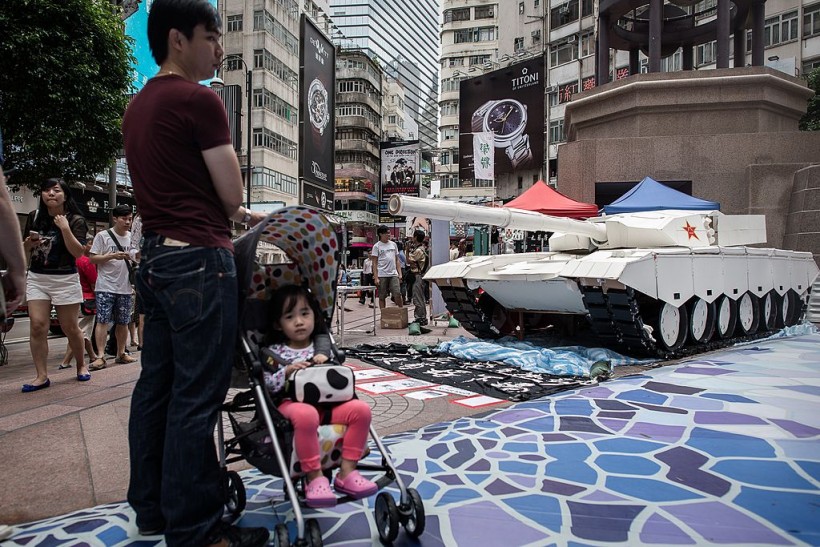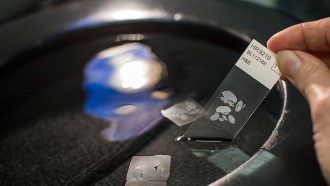
A man standing next to a child looks at a tank replica displayed to symbolize China's June 4, 1989 Tiananmen military crackdown in Hong Kong on June 3, 2014. Up to 200,000 people are expected to take part in a candlelight vigil in Hong Kong on June 4th to commemorate the 25th anniversary of the bloody Tiananmen Square crackdown, as China seeks to wipe the incident from memory
AP photographer Jeff Widener has captured the iconic image of "Tank Man" as a symbol of courage and defiance. However, recent events reveal a disconcerting trend: the AI-generated image of this photo has infiltrated Google search results, potentially distorting digital authenticity on the web.
'Tank Man' Image Mysteriously Pops Out on Google Search Rank
In a shocking incident, a Google search for "Tank Man" returned an AI-generated image as the prominent result, according to PetaPixel.
‘Tank Man’: the full footage. Tiananmen Square, Beijing, 1989 pic.twitter.com/Vg3IMGuQ4H
— Carl Zha (@CarlZha) May 31, 2019
For those unfamiliar with the subject, the image portrayed a Chinese man taking a selfie in front of a tank, and it initially surfaced on the Mid Journey sub-Reddit-a platform dedicated to sharing AI-generated content.
Most alarmingly, the individual who shared this AI-generated image was transparent about its artificial origin and defended its presence against accusations of spreading misinformation.
Google Takes Action
Following this incident, Google promptly removed the AI-generated image from its Knowledge Graph and Knowledge Panels. The company's representative has confirmed this via 404 Media.
"Given the scale of the open web, however, it's possible that our systems might not always select the best images regardless of how those images are produced, AI-generated or not. In this case, we took action to remove the image from the Search feature, as our policies for this feature don't allow inaccurate content on public interest topics like this," the Google spokesperson said.
Surprisingly, this is not the first time that an AI-altered image trended on Google Search results.
Futurism reported back in June that an AI-generated version of the "Girl with a Pearl Earring" painting by Johannes Vermeer resurfaced at the top of Searches.
Related Article: Spotting AI-Generated Images: Here's How Google's 'About This Image' Tech Works
Challenges in the Age of AI-Generated Content
The increasing prevalence of AI-generated content, especially images, poses significant challenges to search engines.
As AI becomes more proficient in creating realistic visual content, the question of how search engines can ensure truthful and authentic search results grows increasingly complex.
The case of the viral "Tank Man" in Google Search only proves that AI-generated images can manipulate the authenticity of the searches.
According to Eliot Higgins, a journalist who debunks online myths and information, users can easily identify what's fake and what's not.
With the coming of the US election, he's more than worried about the politicians who will rely on AI tools to stain the reputation of their rivals.
What's more, it's concerning to see that they can inject misinformation into the minds of the viewers who saw the photos. People should be more careful when dealing with "deepfakes" on the internet.
AI image generators like DALL-E and Midjourney are currently accessible to everyone. At each update, the tools appear to be improving, and this shows that you can trick people by creating new AI images even if you're not an AI expert.
With the variety of AI-image processing software to choose from, it's no wonder why deepfakes are all over the place. Until then, people should always be responsible for posting an image on social media platforms. We never know if it's just manipulated or not.
Read Also: Revolutionizing Weather Forecasting: AI Takes on Hurricane Prediction






